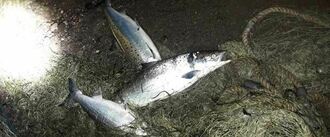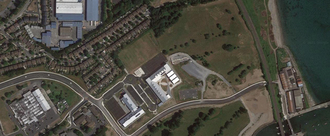- Featured
- Animal Rights
- Anti-racism
- Arts & Culture
- Children
- Climate
- Corporate accountability
- Crime
- Disability rights
- Economic
- Education
- Environment
- Food and Sustainable Production
- Gender Equality
- Governance and Transparency
- Health
- Housing
- LGBT Rights
- Mental health
- Northern Ireland
- Planning
- Privacy and Data Protection
- Rural Inequality
- Social Justice
- Trade
- Transport and Infrastructure
- Workers' Rights
- More
-
Legislation for stalking in Ireland NOW!On the rare occasion that stalking is prosecuted in Ireland, it is prosecuted under harassment laws. The terms ‘stalking’ and ‘harassment’ are sometimes used interchangeably, but they can be significantly different. Harassment is unwanted behaviour from someone else that makes you feel distressed, humiliated or threatened. Stalking, however, is more intense, sinister and distressing. Stalking is a pattern of fixated, obsessive behaviour which is repeated, persistent and intrusive. It causes fear of violence or engenders alarm and distress in the victim. Victims of stalking are often at risk of violence from their stalker. The Law Reform Commission has recommended that stalking be defined as a separate crime to harassment. In the UK, when stalking was made a crime there was an increase in prosecutions - meaning it was necessary and overdue. We urgently need the Minister for Justice to act and legislate to make stalking a crime in Ireland. This petition was set up by Stalking Ireland, a campaign started by Eve McDowell and Una Ring. Eve and Una are using their experiences of stalking to change the law and better support victims of stalking in Ireland. This petition is supported by Sexual Violence Centre Cork.14,008 of 15,000 SignaturesCreated by Stalking Ireland

-
Save Church View Market TramoreThis is a growing Community Market which offers so much more than locally made goods and produce, it offers a meeting place for people in a safe outdoor setting. It is a great addition to the town of Tramore and is well supported by residents. The Council need to be realistic in the number of stalls needed here AND listen to the voices of the community,both market stall owners and those in the town who support the market.1,135 of 2,000 SignaturesCreated by Kate Blackvelvet
-
Woodies, Replace RoundUp with Wildflower seeds!We're in a biodiversity crisis, and it's vital that we stop spraying chemicals that kill our bees and other pollinators. You have the power to influence customers to make better decisions and have beautiful gardens where biodiversity can thrive.105 of 200 SignaturesCreated by Emily Duffy

-
Protect our grottoThe Grotto is a much loved community site that the public has continually accessed for over 70 years. It is a spiritual sanctuary for residents and visitors alike, a much used green area, a respite area for shoppers. The Grotto is essential to the wellbeing and mental health of the community. It is in constant use by people of all ages and all creeds from all social classes. The Grotto should be protected due to its importance to the cultural heritage and history of the Liberties. It was built by Canon Francis Gleeson, parish priest of Meath Street from 1944, with the help of the local community. It was built as a monument to those who died in The Great Wars. We believe that the proposed extension of the already permitted development will seriously risk the existence of this important local monument which is an integral part of the culture, heritage and tradition of the area. There is already an oversaturation of hotels in The Liberties. Please protect our Grotto.3,322 of 4,000 SignaturesCreated by Noel Fleming
-
4 MORE BIRTHDAYS...END DIRECTION PROVISION NOWThe government plans to continue with direct provision in existence until the end of 2024. The government has not committed to ending the delays in the international protection process, that greatly exacerbate the impacts of the direct provision system. This failure has severe impacts on people's mental health and ability to integrate in the community. In order to address this ongoing harm, the government must identify suitable alternative modes of accommodation immediately and introduce new modes of accommodation in 2021. Further priorities that government needs to act on right now are identified in the Catherine Day Report (page 83). These actions can and should be done immediately. 1. Carry out vulnerability assessments for all people in the international protection process to identify and accommodate their special reception needs. A pilot program has commenced, but this will need to be heavily resourced to ensure that all people can be assessed, as Ireland has been obliged to do since 2018. 2. The allowances currently paid to people in direct provision should be increased from January 2021 and regularly reviewed in line with the cost of living. (4.12) – This has not been done. 3. The right to work should be made available after 3 months. (5.1) – This has been reduced to 6 months, not 3 months. It should be reduced to 3 months or 0 months without delay. 4. Applicants should be entitled to apply for driving tests and licenses as soon as they have made an application for protection. (5.2) - This has not been done yet. Government has committed to implementing this by summer 2021 in the White Paper. 5. Applicants should have the right to access higher education on the same basis and at the same fees as Irish people, once they meet the qualifying criteria (5.5). Access to education has been expanded but not to this extent; education is a human right, delay is not acceptable. 6. To clear the backlog of current cases a one-off case-processing approach should be introduced for all applications which have been more than two years in the system (6.7). This has not been done and there has been no commitment by the Department of Justice to do so. This priority – the case processing system – is a crucial action that needs immediate implementation by the Department of Justice. The delays in the international protection process have worsened due to the impact of Covid-19, because international protection interviews and Tribunals were paused for many months. People have been left waiting sometimes for over one year for a decision even after their interview. This has a negative effect on people's mental health, ability to integrate in the community and delays the possibility of their family members joining them. As well as the once-off case processing approach for all applications which have been more than two years in the system, the government must act to ensure that interviews take place and decisions issue within specific lengths of time. The Minister for Justice must ensure that the International Protection Office has the resources, staff IT equipment to deliver this even in challenging situations such as Covid-19. Minister Roderic O’ Gorman has called the timeline of the end of 2024 ambitious. Calling this ambitious is a disgrace. We know that our government can act quickly in the common interest when it has needed to since the start of COVID-19. We’ve had 21 years of people in Ireland living in direct provision and the harm that this does to people and to our communities. The government must act now identify suitable alternative modes of accommodation immediately, while also taking immediate actions to fully implement the priorities identified in the Catherine Day Report, and introduce new modes of accommodation in 2021.128 of 200 SignaturesCreated by CETSS Against Racism
-
Save Kinsale's Iconic LandmarkThe Pipers, and particularly their historic caravan, have been valued and iconic members of Kinsale's community for generations. They are now being assaulted by a small faction developers, and a town council which appears to have little concern for protecting Kinsale's rich history, culture, and community. We are calling on the Kinsale Town Council to immediately return Pipers beautiful caravan to its historic location, and to cease all eviction attempts in the future.155 of 200 SignaturesCreated by Roderick Campbell

-
Equality for Children NOW!Last week, the Irish Government published a report on children’s rights and best interests in the context of assisted human reproduction, written by the Special Rapporteur for Child Protection, Professor Conor O’ Mahony. If adopted, the recommendations contained in this report would address numerous legislative gaps that prevent children conceived through AHR, from having a legal parent-child relationship with both the parents, who love and care for them on a daily basis. Equality for Children are calling on the Government and Minister for Health, Stephen Donnelly to immediately adopt and implement the recommendations made in this report. We urge you to sign our petition in order to push the Irish government to take the actions our children need! More information about the report: The report by Professor O’Mahony provides clear, practical solutions, which uphold the rights and best interests of children including their right to family life, identity and non-discrimination. The report recognises the reality of AHR treatment, which can often involve needing to access services abroad. The report also highlights the need for legislation to address the real-life circumstances of individual children including those already born, so they can establish a legal parental relationship to the parents who love and care for them daily. It highlights the need to provide comprehensive legislation to cover areas such as; altruistic surrogacy in Ireland, the recognition of the rights of children born through international surrogacy, and crucially addressing the gaps in both the Children and Family Relationships Act 2015 and the drafted Assisted Human Reproduction Bill by including children already born through surrogacy, children conceived using a known donor and children conceived outside of clinical settings. The report acknowledges the distress caused to children born through assisted human reproduction and their families due to the absence of appropriate legislation “Children have been left in vulnerable legal positions for lengthy periods of time due to the failure of the Oireachtas to legislate to address their status.” Ranae von Meding, CEO of Equality for Children says, “Last week’s launch represents another crucial step forward in our campaign. By adopting all of the recommendations in Professor O’ Mahony’s report, thousands of children in Ireland will finally be able to have a legal parent-child relationship with both of their parents, something that has been denied to them to date. This includes children born to gay dads through surrogacy, children conceived using known donors and those conceived outside of clinical settings left behind in the Children and Family Relationships Act, 2015”. “Significantly, the report recognises the uneven impact the CFRA has had on children conceived outside of clinical settings and born to LGBT+ parents who cannot rely on the presumption of paternity/maternity as male-female couples can. This very principle has been a significant pillar of our campaign at Equality for Children, as it has effectively resulted in children of LGBT+ parents being discriminated against based on the sexual orientation of their parents.” “We urge the Government to act swiftly and adopt all of these recommendations into legislation governing assisted human reproduction. It is almost 6 years since our country voted for marriage equality. We are still waiting for the legislation that will allow the children of LGBT+ parents to be treated equally." “As it stands currently , in the vast majority of LGBT+ families, only one parent can be a legal parent. This must change. It’s not equal and it’s not what we voted for.”15,610 of 20,000 SignaturesCreated by Ranae von Meding
-
Keep Ballyhaunis Bank of Ireland Branch OpenFor Ballyhaunis and its community to progress we need our local Bank of Ireland branch operational; to be an open and fully functioning Bank. The Ballyhaunis Community have built and maintained this Bank over the last Century and are dependent on it for its future growth which is crucial to the economic future of the region. We now call on the Minister for Finance Paschal Donohoe to now use his influence to have this decision reversed. We need your help please sign our petition, spread the word on social media and anywhere we can get support. How it will be delivered The petition will be delivered directly to the Minister for Finance, Paschal Donohoe TD and by post to the CEO and Board of Bank of Ireland.1,679 of 2,000 SignaturesCreated by Ballyhaunis Chamber of Commerce
-
Remove legal nets from Castlemaine HarbourEvery year thousands of Wild Atlantic Salmon are netted and killed in Castlemaine Harbour by Legal State Regulated nets. With Atlantic Salmon at critical levels and to legally license nets to kill our Native Salmon is beyond unacceptable. Castlemaine Harbour is an SAC which means Atlantic Salmon are a qualifying interest. Nets operate all over the Harbour, some are licensed to operate in Cromane, others in the mouths of very important rivers like the Laune and the Maine. The Behy river, Caragh River and the Emalgh river are all affected by nets operating in Cromane. Inland Fisheries Ireland, the state body in charge of protecting our Salmon in Ireland, authorise a mixed stock fishery in Castlemaine Harbour. In 2019 the number of salmon netted in the river Laune was 1,539 and in Cromane it was 549. There is reason to believe that many more Salmon are caught illegally also by not being tagged when caught in nets. Inland Fisheries Ireland admit that Salmon numbers are decreasing every year so why allow these nets to continue killing Salmon year in and year out. We put alot of pressure on this issue last year and it will be the same this year. Its an environmental disaster and our government is at fault. They are the ones leasing the nets so they can continue to destroy our beautiful rivers. This practice is not only continued in Castlemaine Harbour but continues all over Ireland. We want to concentrate first on Castlemaine because we believe that the Maine river is under serious stress and the figures collected by the Inland Fisheries Ireland are falsified to keep the fishery open. I wont be going nowhere, netting starts in May and we start now, get sharing and signing. Tight lines. Daniel1,917 of 2,000 SignaturesCreated by Daniel Brosnan

-
Walk & Cycle path at Old Bray Golf Club landProvides a safe route to schools. Provides a shorter, more convenient route to Bray Seafront Joins up green amenities259 of 300 SignaturesCreated by Kevin Dunne
-
Help save our wormer costsWormers will become available only with a vet prescription in January 2022. Ireland needs to adopt a special EU clause which will allow local merchants and pharmacists to prescribe these essential and frequently required vet medicines. The Minister’s plans will increase costs dramatically and damage horse welfare.1,051 of 2,000 SignaturesCreated by Brendan Murphy
-
Investigate Data Collection on Autistic PeopleThe rights of autistic people have been gravely breached. The Department of Education and the Department of Health have conspired to share and indulge in private information of 48 autistic people in order to create barriers for them to obtain essential services. This stands in clear violation with our rights under the UNCRPD or the protection of those seeking justice under the Equal Status Act, 2000.3,278 of 4,000 SignaturesCreated by Autistic Adults Ireland

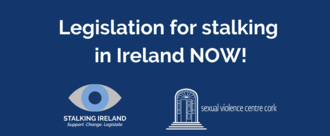.png)
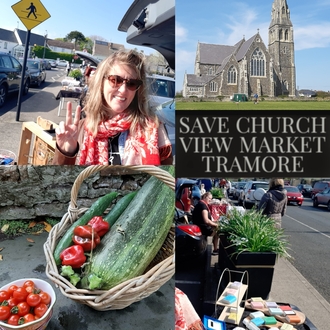
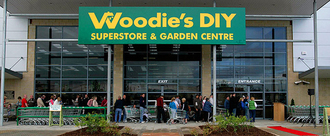

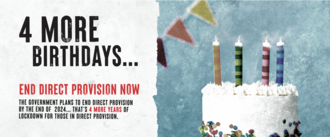

.png)

